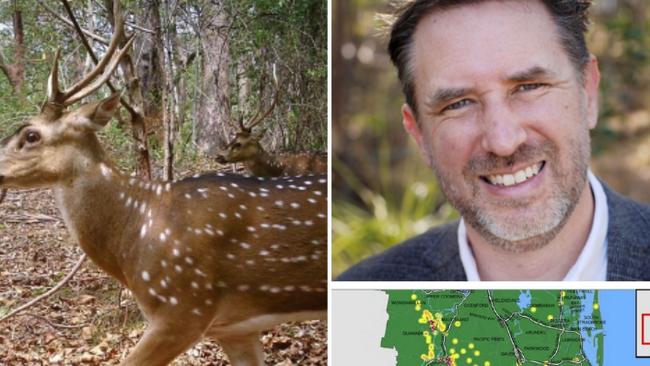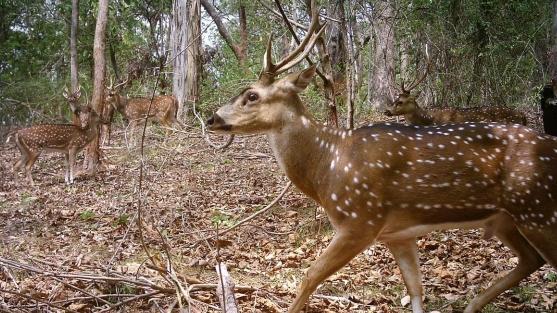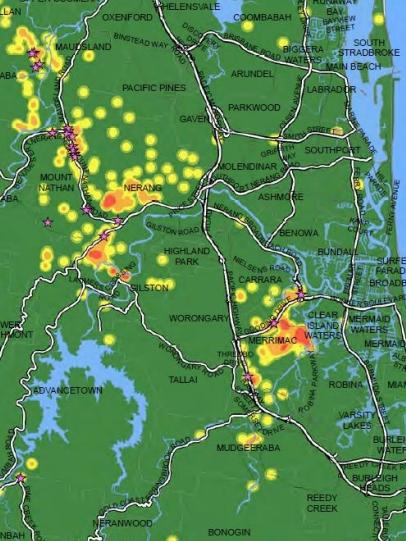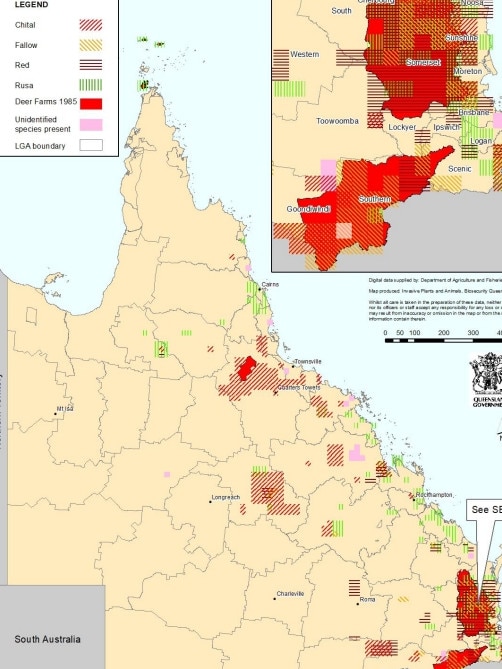Explosion in feral deer population in Gold Coast hinterland sparks crackdown
The Gold Coast hinterland is facing an explosion in the feral deer population with council fearing a vehicle strike will lead to a traffic fatality.

Council
Don't miss out on the headlines from Council. Followed categories will be added to My News.
The Gold Coast hinterland is facing an explosion in its feral deer population with the council fearing a vehicle strike will lead to a traffic fatality.
Gold Coast City Council officers have recommended a feral deer management plan which councillors at a lifestyle committee meeting on Thursday backed with extra funding.
They will increase the current $92,000 allocated to feral deer control to $300,000 with the aim of appointing an invasive animal liaison officer.
The plan will include more thermal drone imaging to capture the invasive pests which, at 1.6m in height and up to 500kg, are damaging not just vehicles in collisions but properties and the natural environment.
Lifestyle committee chair Glenn Tozer, aware of deer in his hinterland division, welcomed immediate action.
“I know a lot of people in the community see or hear the word deer and they think Bambi, pretty animals that cause no damage,” he said.

“But they are quite possibly one of the great environmental issues in our beautiful hinterland and they present a significant risk to young families and people driving in cars.
“In areas like Robina and Merrimac and the hinterland that have so many families and tourists travelling, it’s only a matter of time that, if we don’t take action now, we have a vehicle strike resulting in harm or death to a driver.
“We just need to act immediately and its great to see the team have done that budget saving to do the planning straight away.”
Counts in the past week on the Gold Coast’s floodplain north of Robina, covering an 893ha area, found 670 deer.
Mapping revealed the hot spots for the animals were Merrimac flood plain, Gilston, west of Nerang and north to Mount Nathan and Maudsland.
“It’s a significant population. There are an increasing number of vehicles coming into contact with deer,” an officer said.

“A comparison of 2022 and 2023 data reveals a significant increase in sightings, particularly in peri-urban and rural interface zones. Anecdotal evidence and stakeholder feedback support the observation that deer-related damage was increasing,” a report said.
The report warned the biggest concerns were:
* Motor vehicle accidents that can be as severe as those involving livestock such as cattle and horses.
* Aggression to people, pets and domestic animals during rutting season.
* Damage to gardens – plants, vegetation, stripping back of trees.







